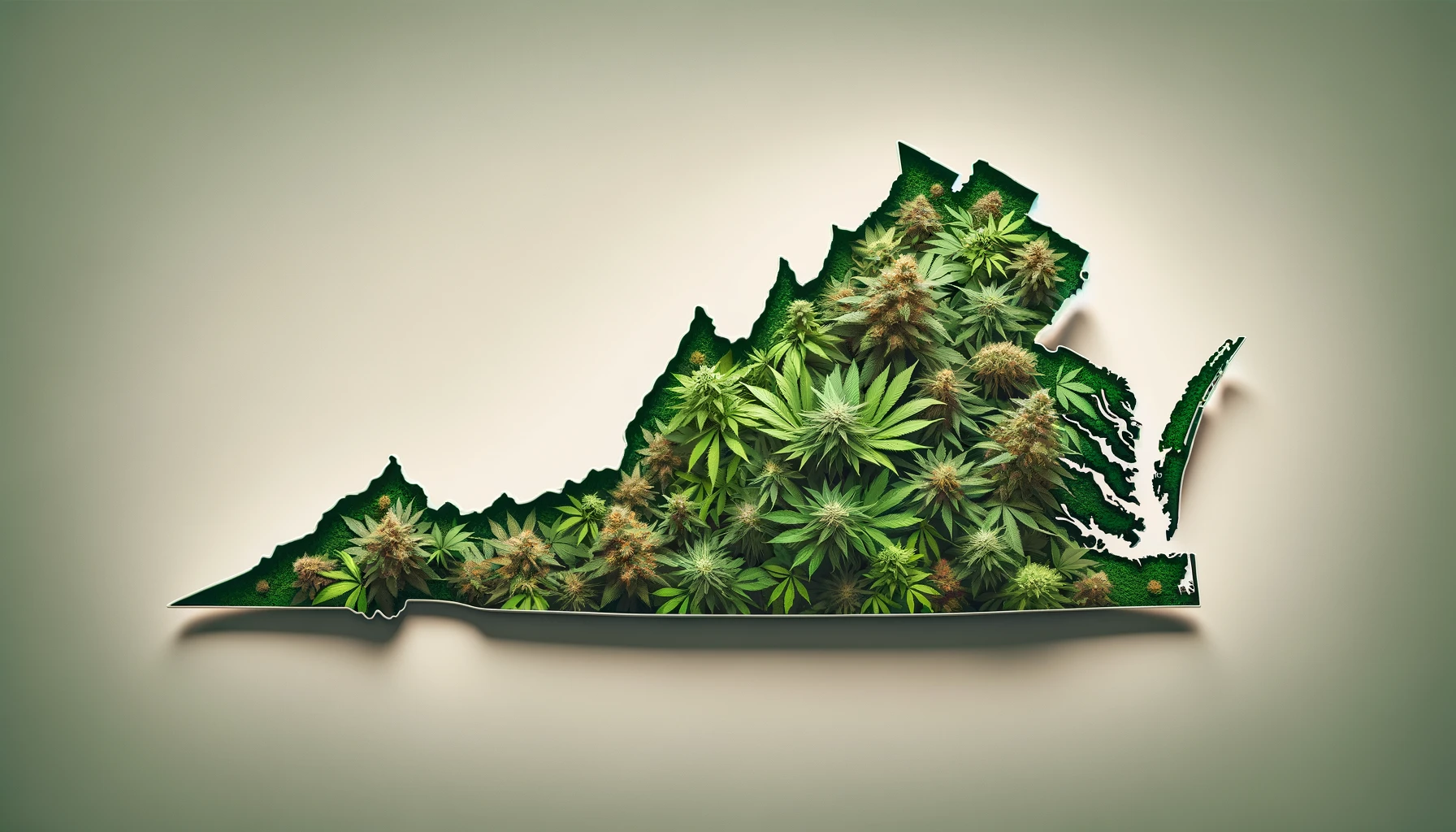 by Don Rippert
by Don Rippert
The journey of marijuana decriminalization and legalization in Virginia is a saga marked by halting progress, legislative inertia, and moments of enlightened reform, encapsulating the Virginia General Assembly’s oscillation between inaction and gradual, albeit grudging, acceptance of societal shifts. This narrative reflects a broader struggle within the state’s legislative body, often perceived as lacking both the foresight and the competence necessary to navigate complex social issues promptly and effectively.
Virginia’s relationship with cannabis began with a cautious foray into medical marijuana in 1979, allowing recommendations for glaucoma or chemotherapy side effects, though this law became largely symbolic due to federal restrictions and a lack of implementation mechanisms. Subsequent tightening of regulations and slight expansions did little to establish a functioning medical cannabis program until significant reforms in the 2010s, culminating in the establishment of medical cannabis dispensaries in 2018 and the relaxation of doctor registration requirements in 2023.
The road to decriminalization and legalization has been equally tortuous. The General Assembly, showing a characteristic hesitancy to embrace reform, rejected decriminalization efforts as recently as 2015. However, the 2019 elections, which saw Democrats gain control of both houses, marked a turning point. Attorney General Mark Herring’s call for legalization and a subsequent summit set the stage for decriminalization in 2020, turning possession of less than an ounce of marijuana into a civil offense with a $25 fine, a move that significantly altered the state’s punitive stance on cannabis.
This legislative milestone, however, did not translate into a smooth path toward full legalization. Despite the establishment of a group to study the effects of legalization, proposed extensions and modifications to the law encountered resistance within the General Assembly, highlighting the body’s chronic indecision and reluctance to fully embrace change. Yet, by July 2021, Virginia had legalized the possession of marijuana (up to one ounce) for adults over 21, established a Cannabis Control Authority, and set forth a framework for the cannabis industry, signaling a significant, if overdue, policy shift.
Critical to this evolution has been the acknowledgement of the disproportionate impact of marijuana prohibition on African American communities, a recognition that has informed both decriminalization and legalization efforts. Decriminalization was championed as a necessary step towards addressing racial disparities in marijuana-related arrests, with the ACLU finding African Americans almost four times more likely to be arrested for possession. This acknowledgment has led to provisions aimed at rectifying these injustices, including preferential access to retail and manufacturing licenses for those historically marginalized by cannabis legislation.
Yet, the Virginia General Assembly’s approach to cannabis reform encapsulates a broader critique of its effectiveness. The protracted path to decriminalization and legalization, marred by delays, partial measures, and missed opportunities for more comprehensive reform, underscores a legislative body often out of step with societal trends and the urgency of addressing longstanding injustices. The gradual reforms, while eventually reaching significant milestones, highlight a reactive rather than proactive stance, suggesting a legislative process bogged down by inertia and a lack of visionary leadership.
In summary, while Virginia has made notable progress in cannabis reform, the journey reflects a legislative body grappling with change, often trailing behind societal demand for reform rather than leading. The General Assembly’s handling of the issue serves as a microcosm of broader criticisms regarding its capacity to adeptly navigate complex social issues, underscoring a pattern of delayed response and piecemeal reform that ultimately casts a shadow over its legislative competence.
Author’s Note: This was a “thought experiment.” Everything above this note was AI-generated by ChatGPT4, including the graphic, title and body of the article. I did not change a word. I used the following prompt for the graphic:
For the body of the article:
“Write a blog article detailing the history and current state of marijuana decriminalization and legalization in the state of Virginia. Use Bing to get the latest information. Present the output in an critical tone which defines the Virginia General Assembly as generally incompetent.”
For the title:
“Provide a title for the previously generated marijuana legalization post that is intended to draw attention.”
From start to finish, the effort took 10 minutes.
I will have more to write about Virginia in the Coming Age of AI over the next few weeks.

Leave a Reply
You must be logged in to post a comment.